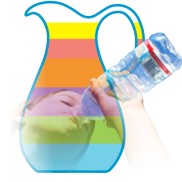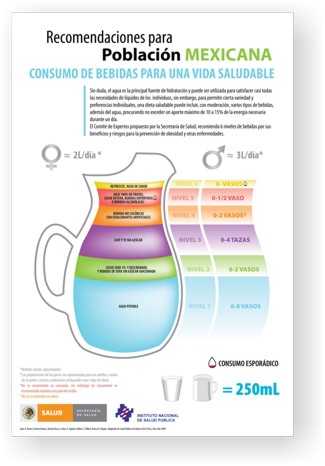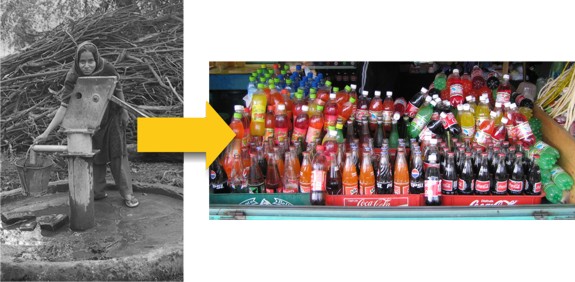Global Beverage Guidelines

We are partly what we drink! Scholars from across the world have shown when we drink a beverage we do not compensate by reducing our food intake—be it water, cola, beer, juice, or milk. The result is that we are just adding lots of calories to our diet. Unless we are drinking reduced-fat milk, which contains nutritional calories, we are mainly adding sugar and saturated fat. In the past beverages have been ignored by the health and nutrition sectors. The focus was on food. However, the large increase in consumption of calories from beverages, in particular fruit juices and sugar-sweetened beverages, represents an important contributor to global obesity, diabetes, and many other problems.

In 2006, Dr. Popkin launched the U.S. Beverage Guidance Panel, which was done without government support and considered controversial by some. The initiative generated interest in the media and among health professions and placed the issue of caloric beverage intake on the radar screen of nutritionists and policymakers in the U.S. and elsewhere.
The Mexican Minister of Health created the official Mexican Beverage Guidance Panel comprised of senior Mexican health professionals, Dr. Popkin, and Walter Willett. This panel’s work led to a series of actions in Mexico and a number of publications that are noted in the major publications listed below.

